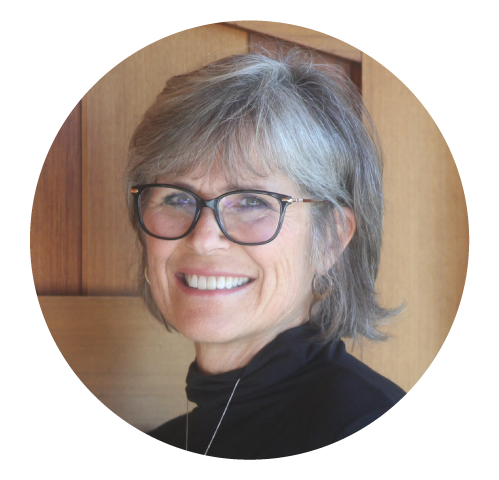It’s 1965. I’m 6 years old. It’s Good Friday. What I know:
There will be fish for dinner. Again. Yuck.
We will go to church in the middle of the day, having gone the night before, and knowing Easter Sunday mass looms, too. At least Lent will be over soon, and I can eat chocolate again.
At noon on Friday, my mom will institute quiet time from noon-3pm. Jesus died then, so we five kids must adopt a somber disposition during this time.
And our afternoon church expedition will include another round of Stations of the Cross -with the mournful recitation “…because by your holy cross, thou hast redeemed the world.”

It’s 1983. I marry a man whose parents and family were raised Catholic. But in the 1950s, unhappy with how the Church treated women, his parents chose to become practicing Presbyterians. The first time I hear of Maundy Thursday is my husband’s disappointment that we Catholics hurried past Palm Sunday to Good Friday without proper consideration for Jesus’ triumphant entry into Jerusalem and his last meal with his friends.
“Do this in memory of me.”
It’s 1992. I’ve fallen in love with my Catholic faith through Catechesis of the Good Shepherd, a way of listening to God with children that nurtures the sacred relationship between God and the child. It leads me to study for and earn my M.A. in Theology in 2004.
The triduum – the three sacred days of prayer preceding Easter – becomes a beautiful experience of memorial –not just remembering but making present. I hear Jesus’ words to his friends in the upper room with new ears. Do this in my memory.

And I wonder why the Catholic faith chose to focus on the institution of the Eucharist from that gathering, as opposed to the act of Jesus washing the feet of his disciples.
I spend years wondering this. Years imagining how different our faith practice might be had we memorialized this act of service, not only every Holy Thursday but at every mass.
I’ve always found it interesting that so many non-practicing Catholics make it to Easter and Christmas masses. The old Baltimore Catechism that I memorized (until 1968 with the reframing of our liturgies and faith practices through the Second Vatican Council) struck the fear of God into me. Missing mass and skipping Eucharist was a mortal sin. If I died before I confessed this grave sin, I would go to hell.
Sheesh. I’ve come a long way since then.

It’s 2023. I will not attend Easter mass this year. Again. I likely will not step into a church as part of Holy Week. But here’s what I know:
To make present – memorial – is something Jesus asks of us every day. Do this in memory of me. Feed the hungry. Clothe the naked. Aid the sick. Visit the imprisoned. I am searching for how to adapt my life so that these become a regular and treasured part of my days.
“And know that I am with you always; yes, to the end of time.”
(Matt.28:20)
A sacrament is an outward sign of an inward reality. It acknowledges God’s sacred presence that already and always exists – in the welcoming into community, in the breaking of bread, in the asking forgiveness, in the covenant relationship, in the healing, in the praying. God is present. Already and always. Not because of the hands of a male minister.
As humans, we need ritual to mark sacred moments. For most of my life, the Catholic faith provided those rituals and traditions. They are inextricably linked to who I am and the family I am a part of. But I need new rituals. New spiritual practices. Practices that do not include an ecclesial element.
This holy week, I will remember Jesus’ sacrifice; his last days with his friends; his suffering; his death. Probably because it’s far too ingrained in me to not remember.
What I look for today is the spiritual courage to establish a new practice. A practice of doing. Do this in memory of me.



 Patricia Franz writes picture books and poetry. She believes children, dogs, and sourdough have a lot to teach us about life, joy, and wonder. She has raised two boys, four dogs, and holds a master’s degree in Theology with a focus on children’s spirituality. Patricia, her husband, her Bernese Mountain dog, Bonny, and her sourdough starter split their time between the Arizona desert and the Sierra Nevada mountains.
Patricia Franz writes picture books and poetry. She believes children, dogs, and sourdough have a lot to teach us about life, joy, and wonder. She has raised two boys, four dogs, and holds a master’s degree in Theology with a focus on children’s spirituality. Patricia, her husband, her Bernese Mountain dog, Bonny, and her sourdough starter split their time between the Arizona desert and the Sierra Nevada mountains. 
Patricia,
I am a Christian. I belong to 2 churches now. They fill me. Both are Bible based. I was moved by your memories and your words. I love my 2 church families. One is UMC and there is a split going on so this one is more Evangelical. And one at home. A similar amazing place. We have worship first where we sing our praises. We in both churches help others through gifts of time and money, donation, help and service. The best part is they are online, too. The doing plus our faith and prayers make all the difference. Janet
Patricia, one’s spiritual journey is lifelong. Many things shape us along the way, and as we grow, we see things differently. As we learn our beliefs are strengthened and sometimes changed. Courage is definitely needed to stand by our beliefs. Your journey has brought you to a place where “doing” is important. So many people talk about change and helping others, but they do nothing about it. They forget the words, “Do this in memory of me.”
A good reminder, Bob – the lifelong part! And growth/change is not always easy. Thanks for the thoughts.
Patricia, I was fascinated by your spiritual journey and amazed that you spent a couple of years immersed in theological studies. We shared many of the same practices as a child. My faith grew from a traditional Catholic background. I now have options for a church setting. The pandemic scared us from traveling to Mass and then we moved to Virginia where we tried out several parishes to find the one that gives us time to reflect in a more relaxed way. My your Easter weekend be filled with love, faith. and family.
My MA is Theology; but I’ve spent 25 years with children in a beautiful approach to listening to God with them (the Catechesis I mentioned in the post). It, and the Jesuits, have shaped my spirituality. Blessings for Easter Joy, Carol!
“And I wonder why the Catholic faith chose to focus on the institution of the Eucharist from that gathering, as opposed to the act of Jesus washing the feet of his disciples.
I spend years wondering this. Years imagining how different our faith practice might be had we memorialized this act of service, not only every Holy Thursday but at every mass.”
Wow….and whoa. Patricia, these lines caught my breath and filled my heart. If I may share a family tradition that lasted almost a decade…When our children were school-aged, we were still attending Mass on a fairly regular basis. One Christmas Eve, we decided that arriving at church an hour early just to get a seat, and even then having to navigate crowded parking, wasn’t bringing us holy-day joy. So we decided to do a service project instead. We have a maternity home outside of Austin that cares for pregnant women in crisis and gives them lodging, support, and education for the first three years with their children. We went to our grocery store, loaded up our cart with baby items (spending as much as we would on our Mass offering), and delivered them to the center. On the way home, our children said that it felt much better than going to church. We continued that tradition for several years afterward, until schedules became too hectic.
From your writing, I see that we have similar feelings about our Catholic upbringing. Thank you for letting me know that I’m not alone in this spiritual wandering, post-Catholicism.
What a beautiful tradition of service and care, Chris! I’m searching for something of service to focus my “doing”.
And no, we are definitely not alone. I believe there are lots of us “recovering Catholics” out here!
Patricia, do you mind if I share your wonderings on my Facebook page, duly attributed, of course? I think that perspective on service is so very profound.
Patricia: Thank you for sharing your journey. I appreciate your honesty and perspective. I have come to accept that I will never find a church that totally agrees with me. For now, I attend and do what I can, and that is okay. I have much to learn there. It is a step by step journey. My best to you as you honor your heart and celebrate this holy season.
So true, Karen. And I grew up believing that the church/parish was NOT about the priest/minister, but the people. I still believe that. Happy Easter!
Patricia, I left a comment, but it said “nonce verification failed,” whatever that means. So I’ll try again. I liked learning about the Catechesis of the Good Shepherd. I even discovered that several churches in my area have atriums. Is this something that happens in the preschool setting or as a part of worship services or both?
I like your emphasis on the doing part of remembering Christ. I always wish our local church did more and then I realize that I am part of the local church. What can I “do” to remember Him more? Thanks for this reminder.
If CGS is being used in the way it is intended, the sessions happen separate from services or mass. And it is offered for 3-6yr old, 6-9yr old, and 9-12 yr olds. But it depends on the church.